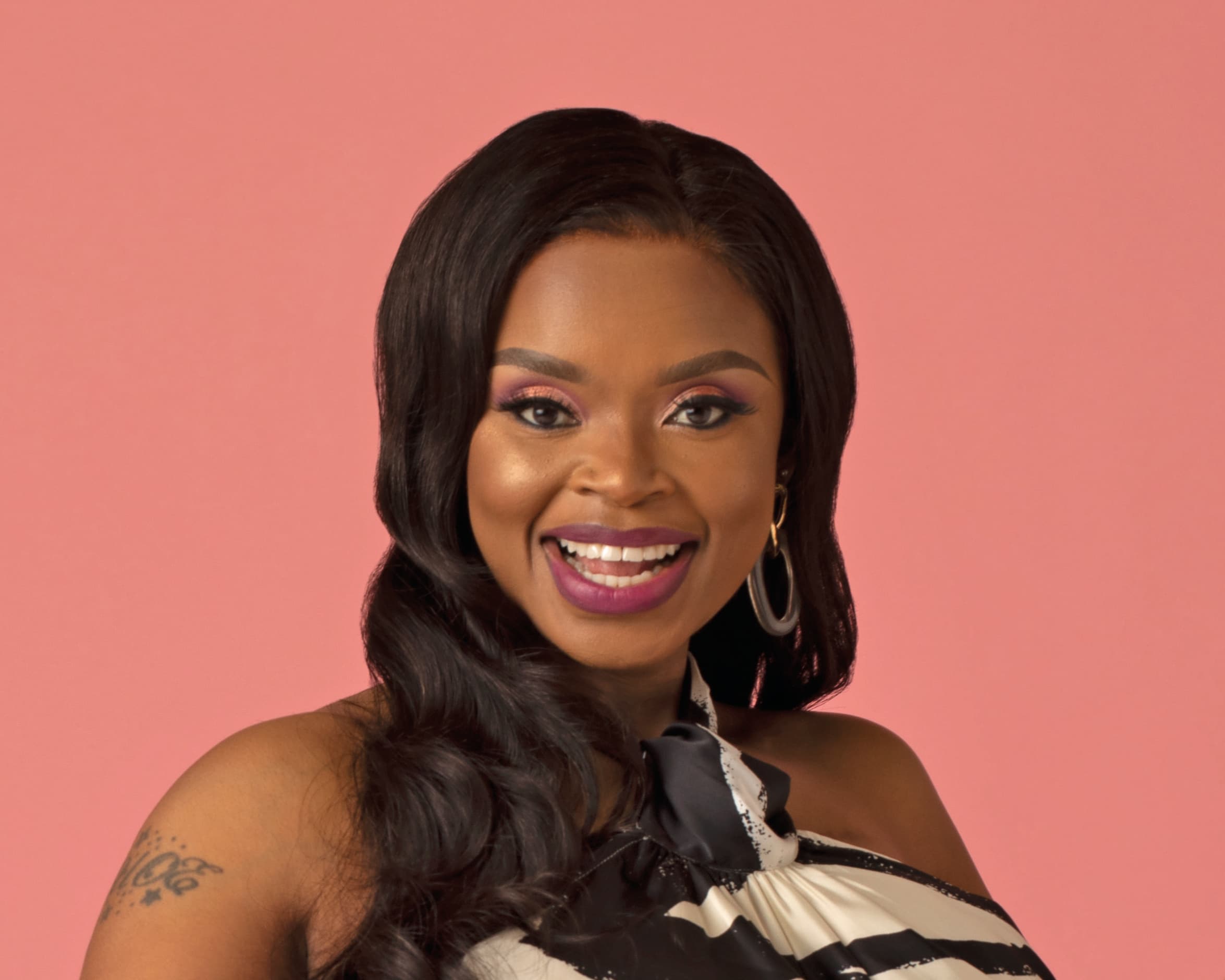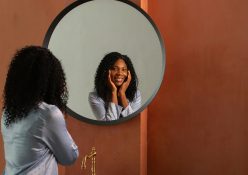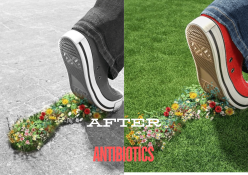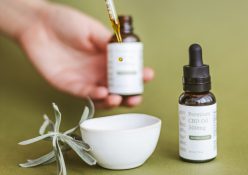As a single mother of six, now 12 years sober, Zoleka Mandela’s life has been a series of highs and lows. Journey with us as we unpack her story
One may be tempted to refer to Zoleka Mandela, 42, as the granddaughter of Nelson Mandela and Winnie Madikizela-Mandela. As we sat with coffee on the tiny suede couch in a basement studio, I was eager to delve into her story in all its fullness, and unpack a few of her own titles: mother, activist and author. Her personal journey of overcoming presents itself four fold: grief over losing first- and third-born children, beating breast cancer twice, single parenting and 12 years of choosing sobriety daily. True to form, she is refreshingly real and humble in an easy manner that feels somewhat spiritual.
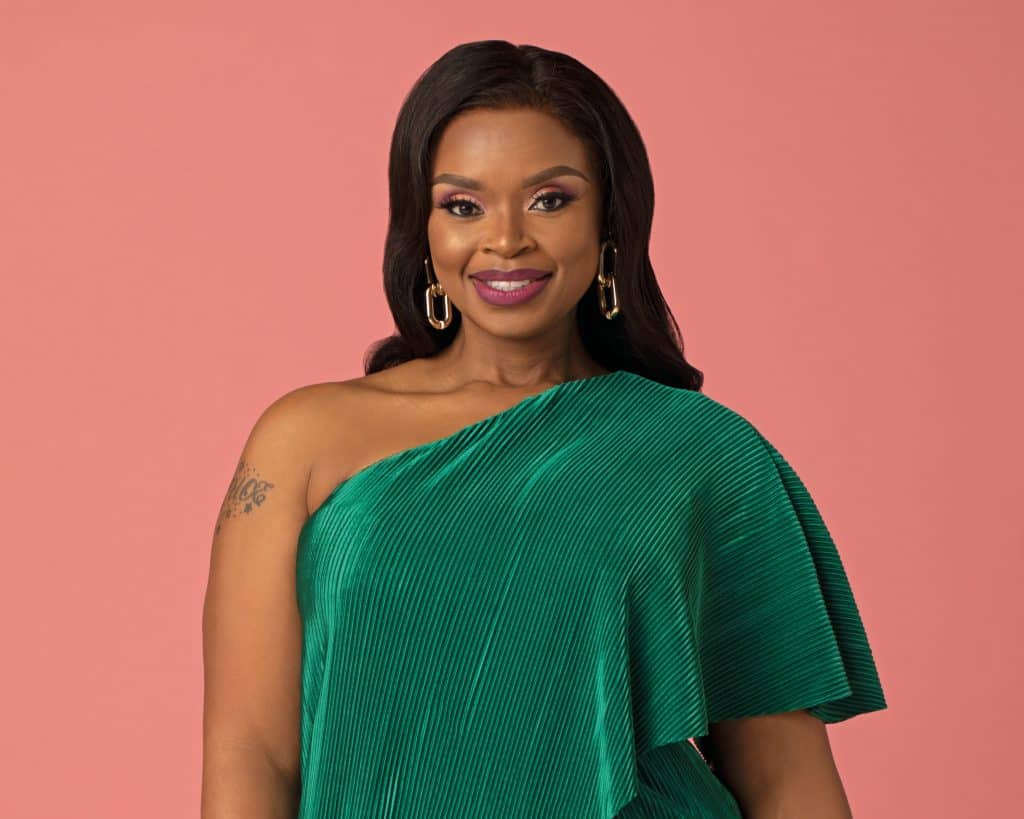
Finding her own story
‘I owe a lot to my grandparents – I can’t deny the platform their legacy has given me, but it has definitely always been a challenge being seen or being expected to be a certain way because of my family. I think people forget that they were just a normal family – yes the legacy is real, but we were home sweeping issues under the rugs and being flawed just like every other family. I think what’s most important to me now is knowing the real legacy was the love, care and joy we had,’ shares Zoleka as we start the interview. But her story is not theirs. Zoleka struggled with alcohol and sexual abuse from a young age, and the pressure of expectation and undealt with childhood trauma sent her spiralling into a many unhealthy habits, one of them being a cocaine addiction that lasted a decade. Her mental health also took a knock that had her recovering from an attempted suicide in hospital for 10 days.
Endings and beginnings
‘2010 was a rock-bottom year for me; I could never forget it. While I was in hospital, I got the news that my 13-year-old daughter Zenani passed away in a car crash. She had just turned 13 and I was beside myself – I would have done anything to trade places with her at that moment. It was a huge wake-up call and an undeniable surge of perspective. I feel in some way I owe her my life. If it weren’t for her death, I don’t know that I would ever have sought the help I needed. Just a few weeks after her death, I checked myself into rehab,’ she calmly shares.
This is where she connected with her addiction counsellor, who she has been with for 12 years, and started therapy. She realised how much medication helped and became hyper self-aware, particularly because this was when she was diagnosed with depression. As she unpacked her grief and dealt with her diagnosis, it quickly became clear to her that she had been suffering from depression since she was a teenager. She recounts that this was the best possible time to have started her journey with healing. Her son, Zwelami, was now her sole priority and she wanted to be the best parent to him that she could be, especially while finally addressing her mental health and unresolved trauma. He had been through a lot witnessing her in her preceding spiral and dealing with the passing of his big sister.Before she continues, a series of alarms interrupt us.
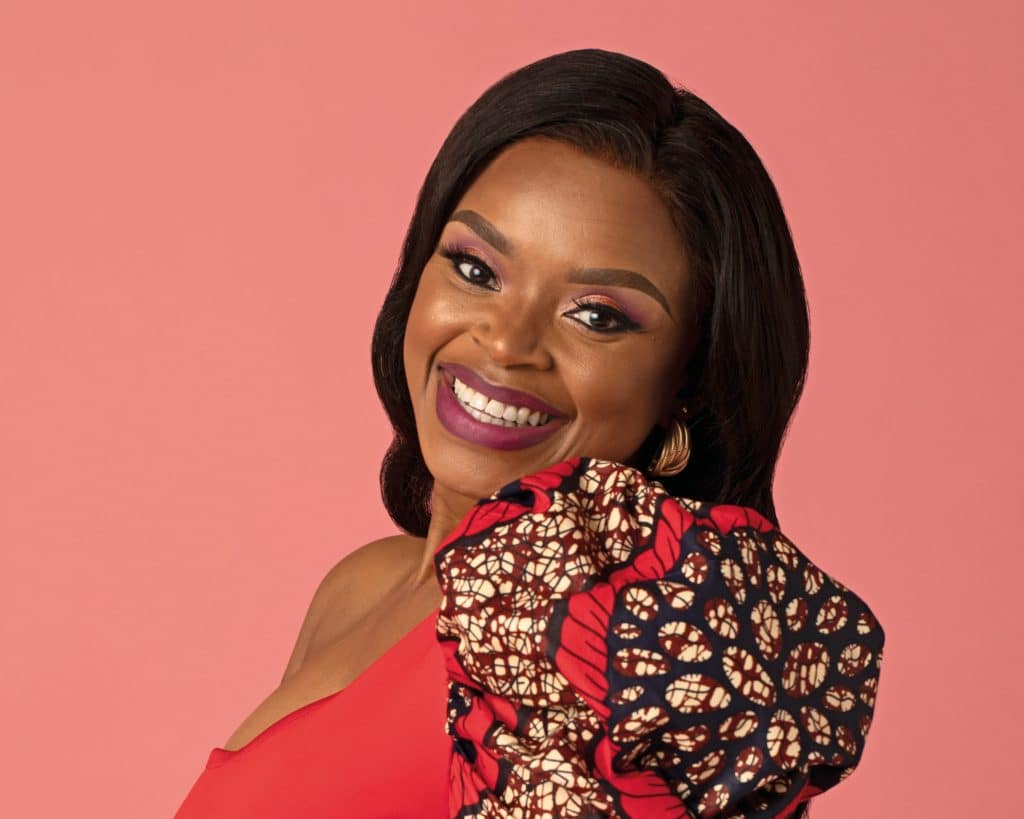
She apologises and asks if it’s okay to make a quick call. On the other side of the line is Zwelami (20), now a fine young man looking after his eight-year-old sister, Zanyiwe, who he needed to pick up from school. The brief exchange is light, easy
and, of course, funny too. Zoleka ends the call with a chuckle and continues by saying, ‘My son just informed me that he thinks he’ll get pizza for lunch since I’m not home. In other words, I’ll be getting a banking notification shortly! I would never have imagined that I could be the woman who cares for four children on her own – my greatest pride and achievement is being able to confidently say that I’m a hands-on, single parent who holds her own, and my kids know they can always come to me, no matter what.’ I smile and ask if they’re close, since it sounds like it. ‘I honestly don’t know what I did to deserve my son. He has seen me in every season and we’ve got this special bond that really affirms so much of my journey.
He has shown me what true forgiveness looks like in his young life, something I will never stop being grateful for and am still working on mastering myself,’ she thoughtfully expresses. 2010 would not be the last year rife with difficulty and grief. At age 32, Zoleka received news of her breast cancer diagnosis. She initially refused treatment but realised how much she had to live for and went on to have a double mastectomy and chemotherapy. Worried she wouldn’t be able to conceive again, she was thrilled to be blessed with her third pregnancy. But her joy was short-lived when her son, Zenawe, passed on mere days after his birth due to complications following his premature entry into the world.
Hope whispered
On becoming an author, she says, ‘I wrote When Hope Whispers during chemotherapy and over less than a year. I knew my story was not the Mandela legacy, it needed to be a story true to my own journey. I wanted to write a story of hope, one that reminded people that they are not alone in their darkest moments of despair. I was dealing with so much grief, in the early years of overcoming addiction and had discovered the addiction I had not yet acknowledged and am years away from truly overcoming: I had a love addiction. These were the entwined stories I needed to tell – for myself and for whoever was destined to be helped.’ And yet, after everything she had been through, she recalls that her second breast cancer diagnosis was very different and not at all less difficult; it was something she didn’t expect would gut punch her yet again. Perhaps she too, needed to hold onto the hope that previously got her through a tumultuous time of physical exhaustion and despair.In 2013, in response to her losses as well as her journey with addiction and breast cancer, The Zoleka Mandela Foundation was born. Her foundation centres around breast cancer education, road safety and social responsibility. Passionate about youth, they also aim to encourage accountability, personal growth and paying it forward through volunteer efforts.
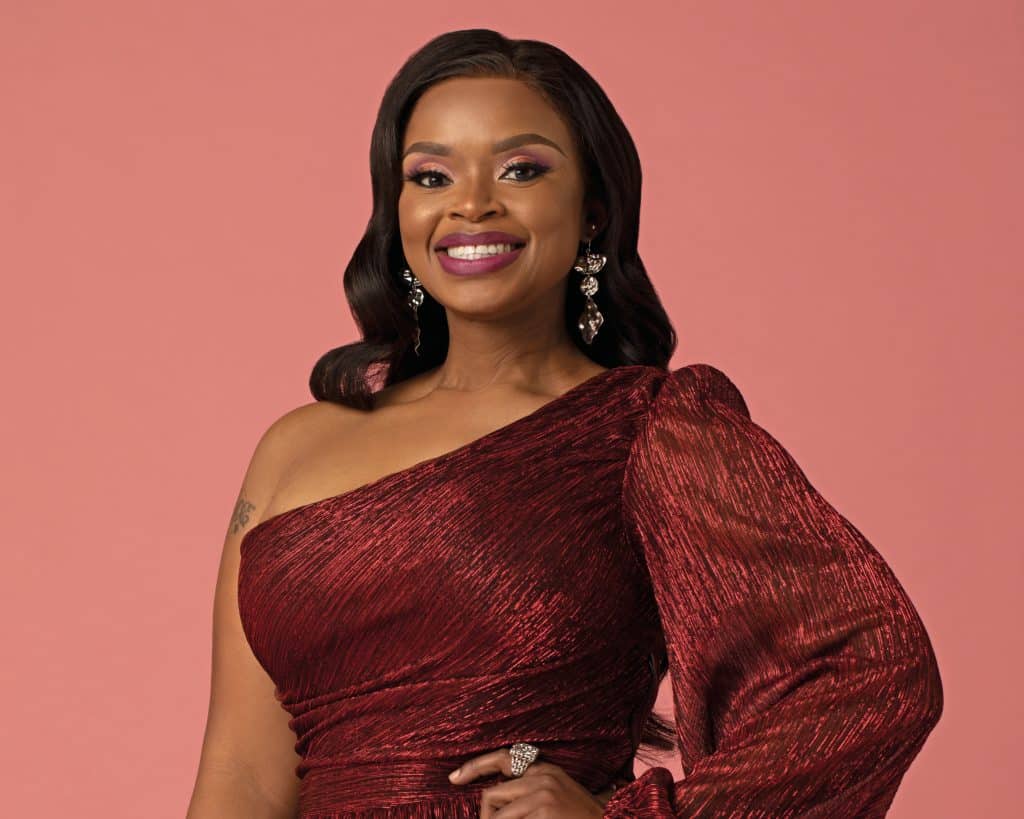
Addicted to love … and hooked on therapy
As we spoke, I realised more and more that this was a conversation between somewhat unlikely gal pals a decade apart in age. I hadn’t gone through what she had but every principle and word she shared was a thoughtful and useful reflection I could quite immediately apply. Her words are not the kind a quote on the internet can translate with the wisdom and heart she spoke with. She had been slowly and comfortably peeling back layers to reveal a woman who truly embodied and reframed a difficult life journey – affirming thoughts I sat with for a long time, and as we spoke I was able to see myself through a new, far more willing and unafraid lens. Zoleka’s self-deprecating and cheeky Dear Diary style entries on her social media are rooted in joy and a deep self-awareness and a palatable sprinkle of accountability she has cultivated over 12 years of therapy. In telling her I’ve been searching for a therapist I can walk with like she has to deal with the various versions of myself that need to function in the world, she literally lights up and says her therapist, while not her friend in the typical sense, is her greatest investment and confidant.
The lonely road
‘Finding out I was addicted to love was in no way surprising – hello, six kids and single! But acknowledging it and finding healthy ways to be alone or date for the right reasons is something I’m far from mastering, especially when loneliness rears its head. It’s a whole different kind of drug to kick. People are so much more complex than a drug cooked up in a lab,’ she says thoughtfully.‘I have lost many friends and even family members along my ongoing journey of healing; it can be a lonely road when many people prefer a broken version of you that they can feel superior to or somehow feel more comfortable with,’ Zoleka continues.
She further shares that her priority will always be her family, particularly because she wants them to have the very best version of her with every passing year. What she believes therapy has made her realise is that to do that, she needs to fill her cup and look after herself first. When you’ve given birth six times and have an entire family to care for on your own while juggling work engagements and everyday life, finding that time can be really hard. ‘Most of my impact work is international so COVID-19 actually gave me time to pause and do something I’d never done before – I went on a solo holiday last year, for the first time ever!
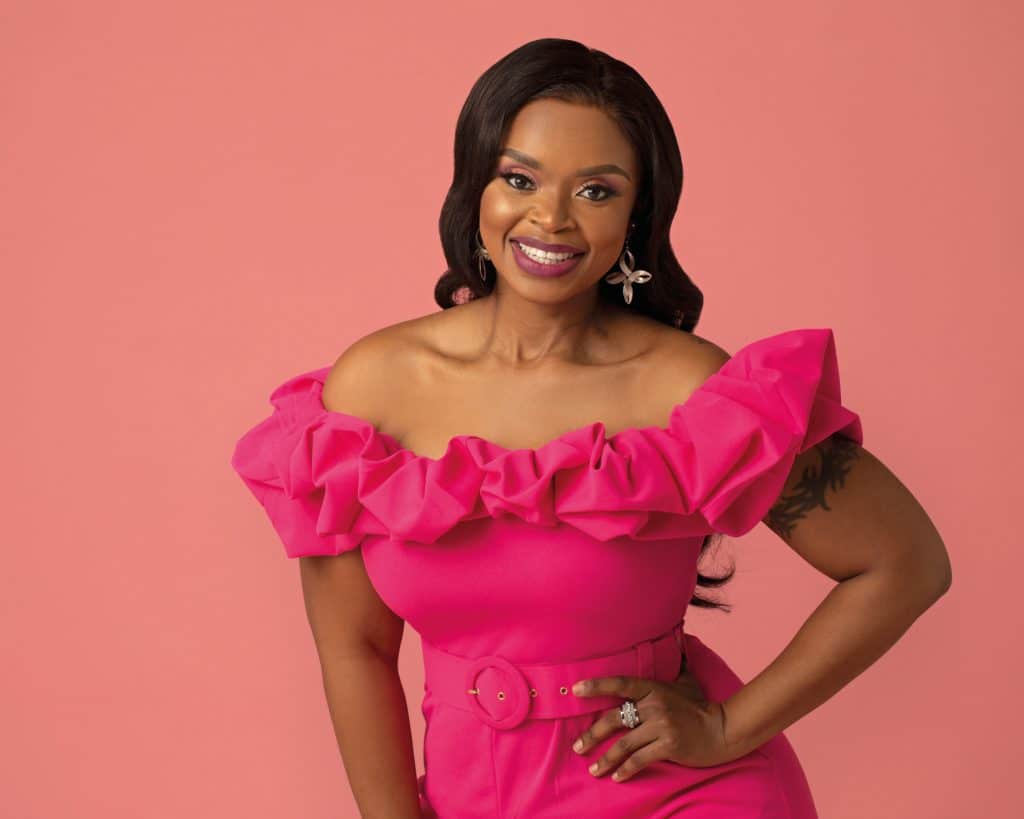
It was surreal and felt like the next level up from losing my grandmother. When she passed, I had to do the adulting thing by myself for the first time. We were really close until the day she died. She stayed by my side every step of the way – I don’t know where I’d be without that anchor of selfless love,’ she lovingly explains. As I wrap this story up, I reflect on how most of what we spoke about over two hours couldn’t even fit into these pages. In sharing her story of overcoming, I felt more courageous and motivated than I had in a long time and have since booked my therapy. ‘I spent a long time truly convinced I would amount to nothing. I hope my grandparents, mom and kids are looking down at me with pride – I’m finally on a healthier path, proud of myself and remain committed to enjoying every bit of being the mother and person I always wanted to be,’ she says before we pick up our bags and leave the basement. I smile as her Uber slowly pulls away to the airport – this gorgeous, chilled woman had simply built the most personal legacy… One of hope.
By Stefanie Titus
Styling: Rojaun de vos
Photography: Callen Jefferson/hmimages.co.za; Photography
Make-up: Pamela Nongila/freelance; hair: tremayne/bird on a wire



